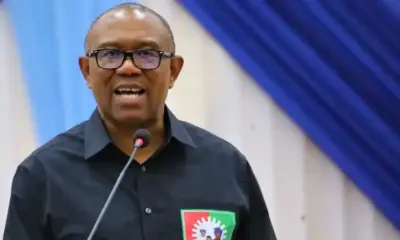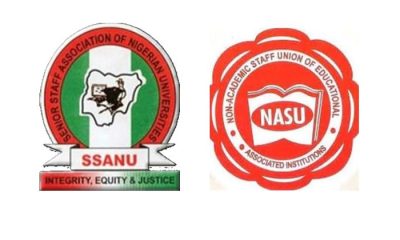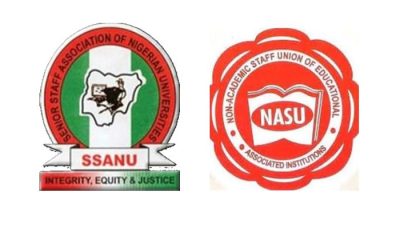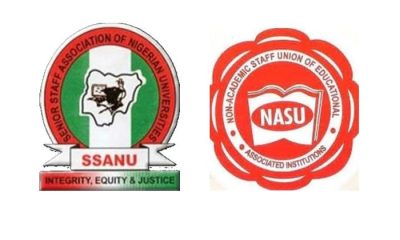Guest Columnist
The Looming Explosion
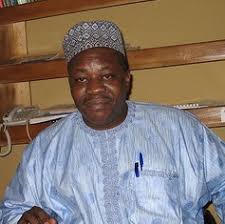
By Prof. Jibrin Ibrahim
The Strike by the Nigerian Labour Congress and the Trade Union Congress set for this week has been postponed. The labour unions were ready to go on unlimited strike following the inability or unwillingness of the Government to introduce significant palliatives that would assuage the intense suffering of workers confronted by a cost of living crisis that has made feeding, transport, medical care, etc. almost impossible for the working class. When I listened to President Tinubu’s Independence Day address, the main message I heard was that he is aware of the suffering of the people and is acting to address it. What workers are saying is that they do not see any evidence yet of what is being done to alleviate their suffering. It is not clear what deal was done with the labour aristocrats leading the unions to stop the strike for the moment but the reality is that if the cost of living crisis is not addressed in a substantive way very soon, the explosion would be coming and it may not even be from wage earners.
The World Bank says say that only 12% of the working class earn a formal wage in Nigeria. The vast majority are farmers or informal workers who have no unions, voice, or structure to articulate their interests and they are even more affected by the cost of living crisis.
I was listening to a radio programme interviewing keke and motorcycle taxi operators and their stories were pathetic. Essentially, they cannot increase their charges at the same rate as the increase in fuel cost for the simple reason that their clients actually have less money than they used to have so when the rates went up they simply ran out of clients. They therefore have to reduce their margins to the lowest possible level which means they often are unable to even replace the cost of fuel the implication of which is that they find themselves operating at a loss. They describe every ride as a challenge as clients haggle, beg, and cajole them to reduce the fares. Fights are also on the increase as they take clients who have no money and still take a ride that is settled by a fight or clients running away. As if all these are not enough, the authorities are after them and seizing their vehicles to completely drive them out of business. Their woes are never heard by the constituted authority because they have no organizational structure and no voice. As you go through the various occupations in which poor Nigerians hustle for survival in our cities every day, the stories are similar. The informal economy is crumbling and hustling to survive is getting tougher.
The stories in the rural areas are worse. Gangs of armed criminal enterprises have turned the kidnapping of farmers into a very lucrative activity for the warlords. When a farmer is kidnapped, it is not only his family that is in trouble. All relations are taxed to make up the ransom payment. As most people have no cash, they have to sell their assets – animals, land, and petty possessions to get the cash, often at giveaway prices. Kidnapping is therefore deepening rural poverty. Many farmers have given up farming altogether and moved to towns living as destitute. Others decide to negotiate with the gangs and pay protection tax to be allowed to farm. These ones are also not finding it easy because they pay so much upfront that have no more resources to buy fertilizers and make something reasonable from the farms. The pressure on more and more of the youth is to join the gangs. As the gangs grow larger, there are fewer farmers to roquette so the gangs would need to move to the major roads and cities and smoke out the middle classes from their homes.
As these miseries deepen, Nigerians are also very concerned about the politics of the country. The drama played out over President Tinubu’s certificate saga this week is bringing shame on Nigerians. Why should there be such profound questions about fake and true certificates, gender identity, and possible identity theft around our President? Why are we unable to produce a political class composed of people with clear traceable itineraries and integrity? Meanwhile, the concern of Nigerians is the capacity of the judiciary to deliver justice in the numerous cases where power and money appear to determine outcomes rather than truth. My fear is that the combination of suffering from economic woes and injustice from the courts might tilt the balance in provoking explosive anger from the people. The judiciary should know that it is itself on trial in the people’s court.
The distance between Nigeria’s irresponsibly affluent political class and the people has become extremely wide. They are having the best times of their lives at a time in which even the middle class is becoming pauperized and forced to sell its assets to survive. As Allister Cooke, the late BBC letter writer from America once explained, POWER CORRUPTS AND ABSOLUTE POWER IS ABSOLUTELY DELICIOUS. The problem will be when it bursts there will be no winners. Nigeria’s ruling class is incapable of acting in its enlightened self-interest so we might just have to wait for the explosion. What is clear is that the social contract between the people and the ruling class is broken, public trust has disappeared and transactional politics is approaching its limits. If someone in government happens to come across this column, think about it and consider the reality that the immediate self-interest of those in power cannot in a country like Nigeria be the sole purpose of government. The security and welfare of the people is the constitutional purpose of government.



